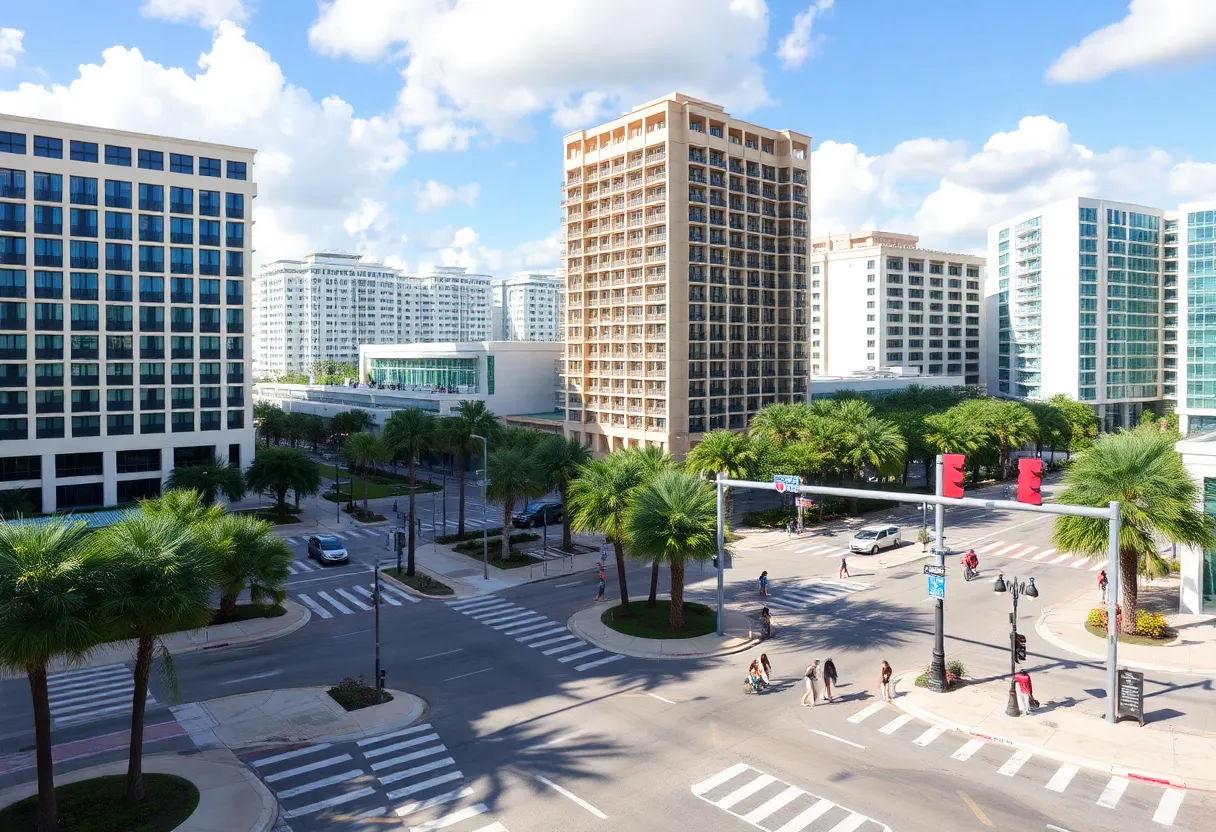News Summary
A clash between hotel and apartment developers is emerging in Orlando’s International Drive, as land values shift toward multifamily developments. A recent tax reform package could direct significant hotel tax funds to property tax relief, stirring concerns over the future of tourism and hospitality in the area. Experts warn that an increase in multifamily projects could overshadow hotel developments, impacting local economic stability. As discussions continue regarding funding allocations, the decisions could reshape Orlando’s tourism landscape for years to come.
Orlando – A clash between hotel and apartment developers is unfolding in the popular tourist corridor of International Drive, where available land sites are now being valued in favor of multifamily developments. The evolving dynamics are further complicated by a recent tax reform package endorsed by the House, which could significantly impact hotel tax funding allocated to counties that rely on tourism revenue.
Experts indicate that the surge in multifamily projects threatens to overshadow hotel developments, affecting future tourism and hospitality growth in Orlando. In a stark contrast between today and two decades ago, only 319 apartments existed along the stretch from the Orange County Convention Center to Oak Ridge Road in 2000. Current trends point to a shift that could reshape the region’s landscape.
The tax package, referred to as HB 7033, is poised to take effect in 2026, wherein 75% of a county’s tourist development tax (TDT) will be redirected to offer property tax relief to homeowners. Proponents of the plan argue that it will save taxpayers money and provide immediate relief. However, critics warn that the proposed reforms might defund local counties, potentially endangering the tourism and hospitality sectors that are vital to Orlando’s economy.
This change puts approximately $93 million at Orange County’s disposal based on TDT figures from the previous year. The bill allows counties to use the remaining 25% of the TDT for essential functions such as tourism advertising, public transportation, and other community needs. Nevertheless, local officials voice concerns that such funds may not be enough to maintain and enhance the tourism infrastructure necessary for growth.
Prior to amendments during House discussions, the original proposal aimed for 100% of TDT funds to be used for property tax relief. The change to a 75% allocation signifies potential reductions in property tax benefits for homeowners, shifting initial calculations that estimated savings could reach up to $700. Counties will be granted discretion on whether the property tax relief will apply to residential, commercial properties, or both.
Amid these adjustments, some local leaders emphasize the importance of consistent funding for tourism marketing, especially during uncertain economic conditions in Florida. The Senate is considering an alternative approach to TDT reform that offers counties greater flexibility in how hotel tax revenues are spent, keeping the conversation around tourism funding ongoing.
In addition to the TDT changes, the House tax proposal suggests lowering the state general sales tax rate from 6% to 5.25% and introduces measures to repeal the aviation fuel tax while creating exemptions for affordable housing projects. Each of these facets can imply significant transformations within the local economic landscape, contributing to the ongoing debates surrounding resource allocation.
The hotel and tourism industry in Orlando is working fervently to preserve the existing structure for TDT revenue allocation amidst these legislative discussions. The upcoming decisions regarding tax reforms and their implications on tourism funding could significantly influence local community services and the overall economic stability of the city.
With competing interests and changing market dynamics, the outcome remains uncertain. As Orlando navigates this contentious intersection of development and fiscal policy, the impact will resonate throughout the community for years to come.
Deeper Dive: News & Info About This Topic
HERE Resources
USF Students Face Visa Revocations Amid Immigration Policy Changes
University Students Relieved as Visa Termination Policy Reversed
Orlando Hosts Diverse Events and Activities in May 2025
Fatal Motorcycle Accident Involving SunRail Train in Orlando
Legal and Cultural Developments in Orlando, Florida
Florida City Faces Rising Gun Violence Amid New Charges
Orlando Gay Chorus Celebrates 35 Years of Music and Community
Infrastructure Upgrades Coming to Downtown Orlando
Severe Weather Alert: Tornado Watches Across Minnesota
South Florida’s Real Estate Sector Faces Challenges and Innovations in 2025
Additional Resources
- Florida Politics
- Wikipedia: Hotel Tax
- Orlando Sentinel
- Google Search: hotel tax reform Orlando
- Lodging Magazine
- Google Scholar: Orlando hotel development
- CoStar
- Encyclopedia Britannica: Tourism
- Hotel News Resource
- Google News: Orlando hotel industry

Author: STAFF HERE ORLANDO WRITER
ORLANDO STAFF WRITER The ORLANDO STAFF WRITER represents the experienced team at HEREOrlando.com, your go-to source for actionable local news and information in Orlando, Orange County, and beyond. Specializing in "news you can use," we cover essential topics like product reviews for personal and business needs, local business directories, politics, real estate trends, neighborhood insights, and state news affecting the area—with deep expertise drawn from years of dedicated reporting and strong community input, including local press releases and business updates. We deliver top reporting on high-value events such as Orlando International Fringe Theatre Festival, Megacon Orlando, and Central Florida Fair. Our coverage extends to key organizations like the Orlando Economic Partnership and Hispanic Chamber of Commerce Metro Orlando, plus leading businesses in leisure and hospitality that power the local economy such as Walt Disney World Resort, AdventHealth, and Universal Orlando. As part of the broader HERE network, including HEREJacksonville.com, HEREPetersburg.com, HERETallahassee.com, and HERETampa.com, we provide comprehensive, credible insights into Florida's dynamic landscape.




